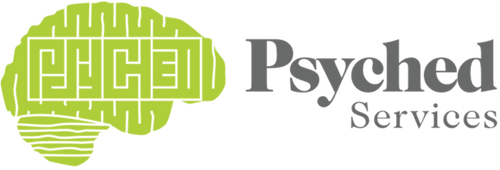6 differences between educational psychology and school psychology

What is educational psychology? For starters, it typically focuses on how learning occurs in school. The educational psychologist observes and studies these from the perspective of behavioral and developmental psychology, neuroscience and cognitive theories. The educational psychologist's broad training lends itself to various roles related to learning, such as curriculum design, instruction, and administration.
School psychologists, by comparison, deal directly with crafting solutions to a child’s learning experience, drawing on many of the same disciplines – especially community and developmental psychology. Besides performing psychoeducational assessments with students that need extra help in classroom settings, they will also be the ones that provide counseling in the way a therapist or psychologist is popularly understood to. School psychologists are also often trained in crisis prevention and intervention, consultation, and behavioral and academic interventions.
Differences between educational and school psychology
Let’s dive in a bit deeper to understand six of the differences in practice. Despite some overlap between their roles, the following is normally true:
- The educational psychologist is more focused on research. However, this research is parlayed into the supports that are delivered in classroom settings. They also can work with kids through conducting psychoeducational assessments for private evaluations, as well as providing families recommendations on how best to support their child’s learning.
- Educational and training paths can be slightly different. Exact requirements vary across states, but an educational psychologist generally needs to have an educational psychology degree. School psychologists can study general psychology, generally hold a master’s degree but may also have a doctorate, and must hold a certification or licensure issued by their state’s governing board (often the Department of Education) if they work in public schools.
- School psychology is age-limited. Educational psychology isn’t. It is possible, and indeed frequent, for the field of focus of educational psychologists to go well into college-age students and beyond. And actually, these findings are frequently relevant to what happens with school-age children, at least for the fact that preparing students for what comes next is an essential part of school. School psychologists, by comparison, traditionally work with students aged three to 18, though they can serve students in special education programs through age 21.
- Their services are delivered in different settings. School psychologists deliver their services through a school setting, even if – like our professionals at Psyched Services – they’re contracted to do so on a case-by-case basis. The work of educational psychologists occurs both inside and outside classroom and school-based settings.
- Educational psychology is macro, school psychology is micro. This can be a generalization, because educational psychologists often get involved with developing solutions and even policies at ground level. But usually, it’s the school psychologist who will perform testing, or help with the execution of an IEP.
- Educational psychologists prepare teachers and schools, school psychologists prepare students. Fellow academics, school administrators and indeed school psychologists themselves are the “peers” that educational psychologists work with. By comparison, students, their educators and their families are the main partners of a school psychologist.
How Psyched Services provides school psychology services
School psychologists with Psyched Services work collaboratively with families and schools to provide comprehensive, data-driven educational consultation on a project basis.
All of our recommendations are individualized, evidence and research-based, and inform achievable action plans that empower learners, promote meaningful outcomes and increase kids’ quality of life.
A slightly different pathway is involved with both services for schools and services for families. But upon reaching out to our office staff, a psychologist or board certified behavior specialist (BCBA) is assigned to the case, along with another clinician providing an extra set of eyes. Both clinicians work in tandem from beginning to end, from assessment, to collaboration with the team and family, and IEP development and attendance – that’s the Psyched Services difference. Each district also has a client manager assigned, who oversees the services provided.
We know it can be challenging to help children thrive, and when you lack the tools, and resources to be effective, you may worry or feel discouraged. Whatever challenges you’re trying to navigate with your student, schedule a call with us today — and breathe a bit easier knowing our expert support is here to help.
Help children right where they are. Our Developmental Milestones Guide outlines children's complex developmental stages in a simple reference chart. When you know what to look for, you know how to help. Download the guide below.



.jpg?width=352&name=cdc-GDokEYnOfnE-unsplash%20(1).jpg)

